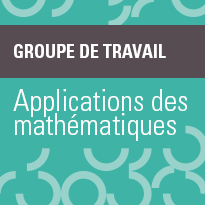Seasonal Hierarchical Hidden Markov Model for Stochastic Weather Generation Abstract
le 15 juin 2022
11h - Groupe de travail "Applications des Mathématiques"ENS Rennes En ligne : https://webconf.math.cnrs.fr/b/fre-zyp-g2r
Séminaire de David Métivier (École Polytechnique) au groupe de travail "Applications des mathématiques"
Lien vers la page Web de l'orateur
Résumé : The challenges of climate change force industrials to carefully analyze the resilience of their assets to anticipate future weather conditions. In particular, the estimation of future extreme hydrometeorological events, like the frequency of long-lasting dry spells, is critical for hydropower or nuclear generation. Stochastic Weather Generators (SWG) are essential tools to determine these future risks, as they can quickly sample climate statistics from models. They can be either trained on historical data or from simulated data like expert climate change scenarios.
In our work, the SWG described and validated with France historical data is based on a spatial Hidden Markov Model (HMM). It generates correlated multisite rain occurrences and amounts, with special attention to the correct reproduction of the distribution of dry and wet spells. The hidden states are viewed as global climate states, e.g., dry all over France, rainy in the north, etc. To reproduce the seasonality and bypass the small data number, the daily estimated HMM parameters are smoothened. The resulting model is fully interpretable and achieves very good performance, specifically in terms of extremes, where, for example, statistics of drought at the scale of France are well replicated. The model architecture allows easy integration of other weather variables like temperature. All these properties are essential to quantify accurately the risks of climate change.
This is a joint work with S. Parey (EDF) and E. Gobet.
Résumé : The challenges of climate change force industrials to carefully analyze the resilience of their assets to anticipate future weather conditions. In particular, the estimation of future extreme hydrometeorological events, like the frequency of long-lasting dry spells, is critical for hydropower or nuclear generation. Stochastic Weather Generators (SWG) are essential tools to determine these future risks, as they can quickly sample climate statistics from models. They can be either trained on historical data or from simulated data like expert climate change scenarios.
In our work, the SWG described and validated with France historical data is based on a spatial Hidden Markov Model (HMM). It generates correlated multisite rain occurrences and amounts, with special attention to the correct reproduction of the distribution of dry and wet spells. The hidden states are viewed as global climate states, e.g., dry all over France, rainy in the north, etc. To reproduce the seasonality and bypass the small data number, the daily estimated HMM parameters are smoothened. The resulting model is fully interpretable and achieves very good performance, specifically in terms of extremes, where, for example, statistics of drought at the scale of France are well replicated. The model architecture allows easy integration of other weather variables like temperature. All these properties are essential to quantify accurately the risks of climate change.
This is a joint work with S. Parey (EDF) and E. Gobet.
- Thématique(s)
- Recherche - Valorisation
- Contact
Mise à jour le 1 juin 2022
Groupe de Travail "Applications des Mathématiques"
le mercredi à 11H00 en salle 7
Contacts : Nicolas Crouseilles, Frédéric Marbach.
Le groupe de travail propose des exposés centrés autour de l'analyse, l'analyse numérique et le calcul scientifique. L'accent est mis sur une forte interactivité avec les auditeurs.
Comment venir à l'ENS ?
Contacts : Nicolas Crouseilles, Frédéric Marbach.
Le groupe de travail propose des exposés centrés autour de l'analyse, l'analyse numérique et le calcul scientifique. L'accent est mis sur une forte interactivité avec les auditeurs.
Comment venir à l'ENS ?







